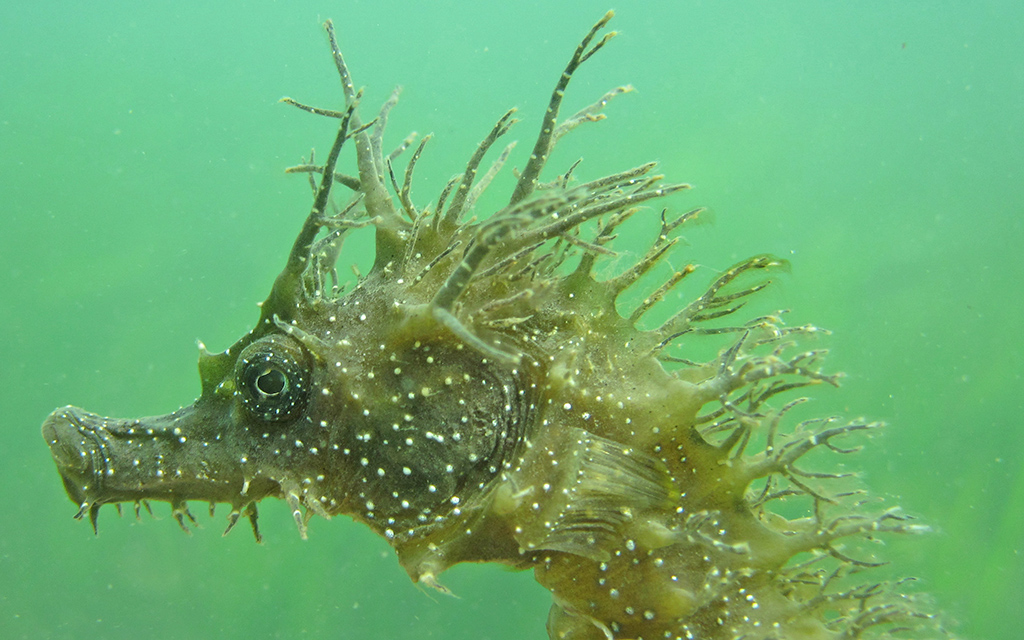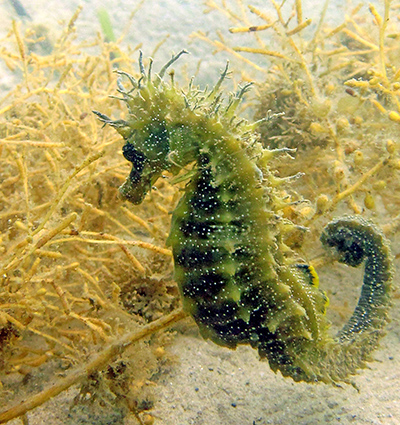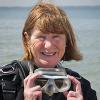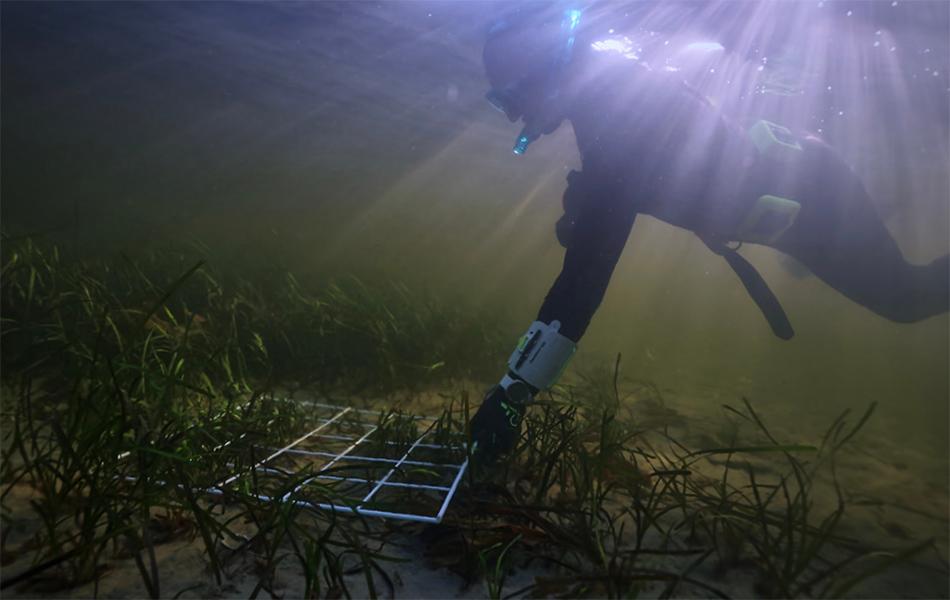
Photo credit: © The Seahorse Trust
As BSAC members prepare to take part in 2024's Great Seagrass Survey (25-27 May), Environmental Adviser Jane Maddocks advises what to do if you come across seahorses by accident.
When surveying seagrass you may, if you are lucky, come across a seahorse. Seahorses are amazing. They are the only animal species known where the male really does get pregnant, carry the babies, then deliver minute fully-formed seahorses to the outside world.

Photo credit: © The Seahorse Trust
They are very sensitive creatures and you need a licence to look for them. If you accidentally see one during the Great Seagrass Survey (GSS) here are some pointers on what to do
- Remain still and watch: five minutes maximum
- If the seahorse goes dark and drops down to the seabed, swim away - it is unhappy and/or stressed
- Stressed seahorses have a high mortality rate
- If it turns its back on you, it is not happy - you should move away
- If it turns its back on you it is still watching: they really can see behind them
- If you take a photograph NEVER use flash - they get stressed as are abnormally sensitive to light. Flash really hurts them
- If you take a photo DO NOT put it on social media - it is an offence. Keep your finding quiet, just you and your dive team, not the public at large
Record your sighting!
There are two seahorse species around British Coastline, the Spiny Seahorse (Hippocampus Guttulatus) and the Short Snouted Seahorse (Hippocampus Hippocampus). Seahorses are under threat from habitat loss, climate change and the Curio Trade. If you are lucky enough to spot a seahorse, please share your sighting with The Seahorse Trust:
- If you can, make an estimate of the seahorse's length from the bottom of the 'S' shape to the top
- Complete the sighting form for The Seahorse Trust that you can find on their website
Join the BSAC community
The BSAC network is working together to keep people connected to the sport. With online training, special interest webinars, competitions, support to clubs and the trade, and much more... we'd love you to join us.

 Author: Jane Maddocks | Posted 20 May 2024
Author: Jane Maddocks | Posted 20 May 2024



